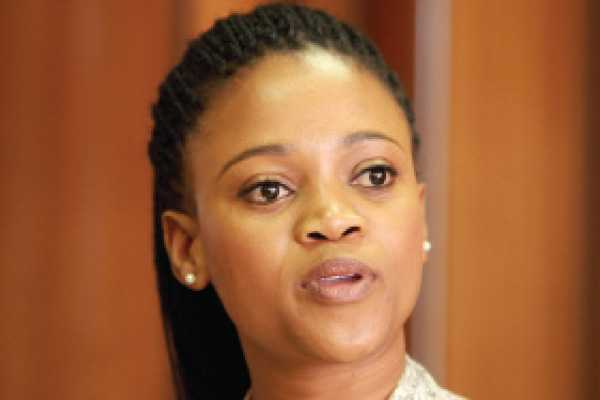Forum discusses future frontiers of global value chains
Minister of Investment, Trade and Industry Bogolo Kenewendo says Botswana can leverage on global value chains and the use of technology as a new impetus towards her active participation on global trade.
Speaking in a panel discussion on future frontiers of global value chains at the World Economic Forum (WEF) 2019 that ends today in Davos, Switzerland, Kenewendo said some of the current challenges for Botswana have been logistics and labour issues, among others. “In the past we have been told that we are a small landlocked country, logistics are against you, labour issues are against you, so you cannot participate in global trade,” she said, adding that global value chains are bringing new opportunities for participation and changing the country’s narrative.
“We are seeing companies having interest in Botswana for manufacturing, especially in the components side of manufacturing, allowing Botswana to be the gateway to Southern African Development Community (SADC).” In addition, Minister Kenewendo stated that Botswana has also made significant investments towards human capital and infrastructure.
“For example, roads that are connecting Zambia, Zimbabwe, South Africa, just to enable that positioning of being the gate way at the heart of the region.” Kenewendo said there is need for the World Trade Organisation and multilaterals to remove the bias that is thought to exist to cater more and accommodate developing and smaller economies into international trade.
However, it is critical to start at regional level of SADC and Southern African Customs Union with more planning going towards the development of regional value chains instead of having one mega economy that absorbs all manufacturing, but one that starts to spread out in the region. “That should be a deliberate measure,” she said.
Kenewendo is also convinced that countries like Botswana that need to diversify their economies need to look more at partnerships that will give them more access to international trade. “But we also have to do more not only in investment in infrastructure but also in legislative infrastructure and be willing to give incentives. “ For example, she said Botswana has prepared incentives including a five percent tax rate in order to lure more manufacturing companies into the country.
Botswana also places much emphasis on developing human capital. “That is where the world is going and for us to participate in global trade we should have a skilled manpower to be able to use the technologies as they arise.”
Statistics indicate that almost 60 percent of today’s manufactured exports are unfinished goods, which pass through global supply chains. Top factors that affect value chains include; emerging technological trends, services, lowering of trade costs, sustainability and geopolitics. Minister Kenewendo is accompanying President Dr. Mokgweetsi Masisi at the global forum.






